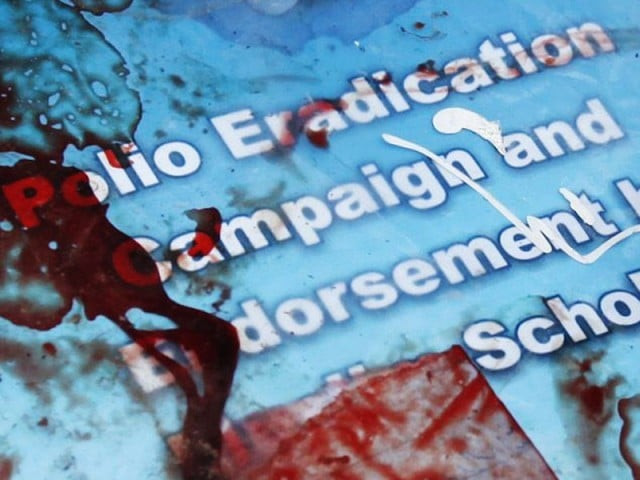Another attack on polio workers
We, as a nation, need to appreciate the work of polio vaccination teams and provide them greater security.

PHOTO: REUTERS/FILE
The vulnerability of social workers and the police force in Pakistan is an ongoing problem. Last December, nine polio workers were killed in the northwest and Karachi, and again in the northwest in January, another policeman, along with seven other polio charity workers, was shot dead. Police members continue to fall under attack across the country. Security measures taken thus far have not been enough. These recent murders of policemen escorting polio workers are making a mockery of our nation’s security force. The best measure would be to eliminate the biggest enemy of humanity in the country altogether — the extremists. What incites further derision is that Pakistan is, shamefully, one of only three countries where polio has not been eliminated — and one of those three countries, Afghanistan, is recovering from a decade-long war.
There is no threat to human reproduction via polio vaccinations, nor is it proven that any of these polio workers were spies. Yet, workers continue to lose their lives. We, as a nation, need to appreciate their work, and help them along, providing them greater security and leaving no question in our minds that these vaccinations are necessary. Indeed, we cannot allow conspiracy theories, regarding these vaccinations, to take root in any section of society, as has been attempted in the past.
Published in The Express Tribune, April 12th, 2013.














COMMENTS
Comments are moderated and generally will be posted if they are on-topic and not abusive.
For more information, please see our Comments FAQ